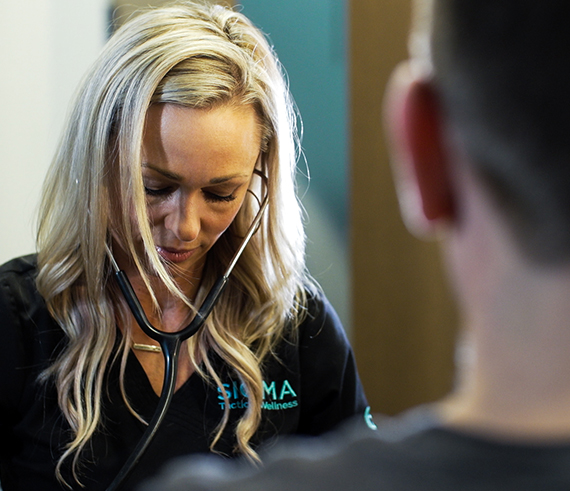Officers can now test their level of cardiac risk through this affordable program
Studies show diet and exercise alone may not be enough to prevent heart disease
_____
Written By: Police1 BrandFocus Staff

Law enforcement officers choose their career paths for many reasons. Some want to serve their community while others have the desire to continue the legacy of a parent or grandparent. None of them decide to become a cop to endure higher rates of hypertension, diabetes, obesity and heart disease compared to civilians.
Yet despite all the good LEOs do, they experience an average life expectancy that’s 22 years shorter than the general public, and those who have a heart attack do so at an average age of 46. Putting themselves in dangerous situations every day doesn’t affect their mortality rates – it’s heart disease that takes the lives of many of these brave individuals.
Most officers take care of themselves as best as they can while dealing with disrupted sleep schedules, high levels of stress and eating on the go, but that isn’t enough when it comes to cardiac problems.
“You cannot correct heart disease completely with diet and exercise changes,” said Dr. Jonathan Sheinberg, a board-certified cardiologist who has also been in law enforcement for over 30 years. “Even if you’re eating well and exercising, that doesn’t mean you’re exempt from the development of heart disease.”
Unfortunately, heart disease is often uncovered too late, as some physicians do not consider someone to be at risk until after they endure cardiac issues. An officer who has not yet experienced problems can’t visit their doctor, request a full cardiac workup and expect it to be covered by insurance, explains Sheinberg.
This missing element of cardiac care led Sheinberg and his team at Sigma Tactical Wellness to develop a program for law enforcement officers to aid in proactively identifying their level of cardiac risk.
Not only does Sigma’s program help to decrease the prevalence of heart disease among law enforcement officers and increase the life expectancy of LEOs, but it can work to bring down departmental healthcare costs.
In a recently published article authored by Sheinberg, he explains that heart attacks are one of the leading medical expenses faced by law enforcement agencies.HOW IT WORKS
Sigma Tactical Wellness incorporates novel testing modalities that have been proven effective in over 6,500 law enforcement officers across the United States. Through this aggressive and cutting-edge technology, the rates of heart attack, obesity and other metabolic illness can be drastically reduced, if not eliminated. This strategy allows participants to return home at the end of their shifts and enables them to enjoy a retirement that they have worked so hard for.
The on-site cardiometabolic flagship program delivered at each agency costs $799 per officer and includes the following components:
- Active electrocardiogram (ECG) with physician interpretation and evaluation.
- Cardiometabolic stress test with expiratory gas analysis – determines contributions of fat and carbohydrate into total daily energy expenditure (indirect calorimetry).
- Advanced lipid panel including cardiac inflammatory biomarker analysis – also includes an overview of hematology, liver/kidney function, thyroid, PSA (men only) and HbA1c (diabetes).
- Carotid intima-media thickness ultrasound (CIMT) – performed on-site and interpreted in real-time.
- Consultation with a mid-level clinician (advanced practice nurse/practitioner or physician’s assistant).
- Consultation with an exercise physiologist.
- In-depth nutritional analysis based on individual results of cardiometabolic testing.
- Aggregated data report prepared and delivered to command staff containing 20 data points as a cross-section of personnel health status.
Photo of actual patient shown

